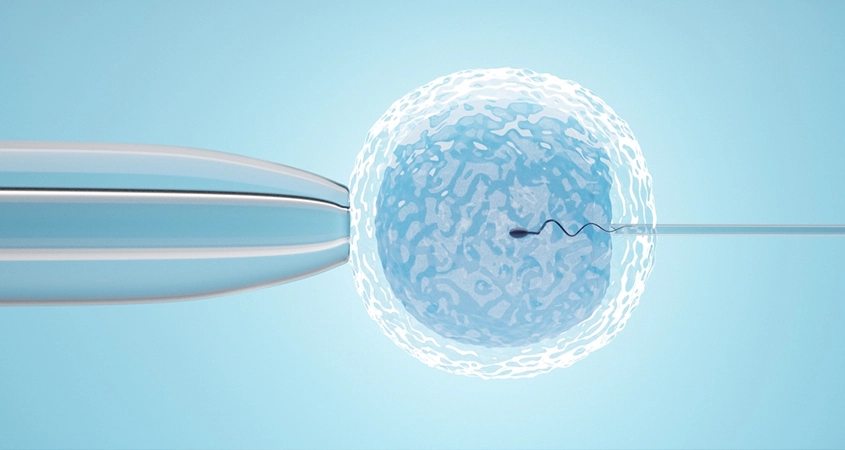IVF (In Vitro Fertilization) is a fertility treatment where eggs are collected from a woman’s ovaries and fertilized with sperm in a lab. The resulting embryo is then transferred into the woman’s uterus, where it can implant and develop into a pregnancy.

IVF/ICSI treatment in Nairobi, Kenya
When it’s hard to get pregnant, Fertility Point offers hope. In Vitro Fertilization (IVF) with Intracytoplasmic Sperm Injection (ICSI) is one of the most successful ways to treat infertility. We offer the Best IVF/ICSI Treatment in Nairobi, Kenya, where our expert team helps couples move forward with care and confidence. Here is a simple step-by-step look at how the IVF/ICSI process works.
Step 1: First Visit and Testing
We begin with a consultation. You’ll meet with one of our fertility experts to discuss your health, fertility challenges, and your goals.
Both partners will go through tests. This includes semen analysis for men and egg reserve testing for women. These help us understand your situation and create a treatment plan that’s right for you.
Step 2: Egg Growth Through Medication
To collect healthy eggs, the female partner takes fertility medicine for about 8 to 14 days. These medicines help the ovaries make more eggs than usual.
During this time, we check your progress with blood tests and scans to make sure the eggs are growing well.
Step 3: Collecting the Sperm
On the day the eggs are taken, the male partner gives a sperm sample. If there are sperm problems, we use ICSI — where one sperm is injected directly into the egg.
If needed, we may also collect sperm using special methods like TESA or TESE.
Step 4: Collecting the Eggs
Once the eggs are ready, they are taken out using a small needle under light sedation. This process takes about 20–30 minutes, and most women feel fine by the next day.
Step 5: Fertilizing the Eggs
We use ICSI to inject one healthy sperm into each egg. This helps when sperm quality or movement is low. The fertilized eggs are then kept in our lab and watched carefully for a few days as they grow into embryos.
Step 6: Watching the Embryos Grow
We monitor the embryos for 3 to 5 days to check their quality. If needed, we may suggest a special test called PGT (Preimplantation Genetic Testing) to check for any genetic issues before transfer.
Step 7: Placing the Embryo into the Uterus
When the embryos are ready, we gently place one or more into the uterus using a soft, thin tube. This is a quick and painless step that doesn’t require anesthesia. You may feel slight cramping, but it passes quickly.
Step 8: Checking for Pregnancy
Around 10 to 12 days later, we do a blood test to check if you’re pregnant. If the result is positive, we schedule an ultrasound to confirm the pregnancy and heartbeat. We will continue to support and guide you through early pregnancy with follow-up tests and care.
How Well Does IVF/ICSI Work?
IVF/ICSI Treatment in Nairobi, Kenya, gives many couples a strong chance of success — especially when male infertility is involved.
Success depends on many things, like the woman’s age, the health of the sperm and eggs, and overall wellness. Even though ICSI works well for male fertility problems, the quality of embryos and the condition of the uterus are also important.
Why So Many Choose Fertility Point
We offer the Best IVF Treatment in Kenya with a caring team that stays with you from start to finish. We take care of both your medical needs and your emotional journey. Whether the cause is male infertility or something else, we’re here to guide you every step of the way with expert IVF/ICSI Treatment in Nairobi, Kenya.
Ready to Begin Your IVF/ICSI Journey?
If you want to explore IVF/ICSI Treatment in Nairobi, Kenya, we’re here to help.
Schedule your consultation today and take the next step toward building your family with the Best IVF Treatment in Nairobi.
FAQ's
What exactly is IVF, and how does it work?
How long does the IVF process take?
The IVF process usually takes about 4 to 6 weeks for one cycle. This includes ovarian stimulation (10–14 days), egg retrieval, fertilization, and then embryo transfer within 3–5 days, followed by a pregnancy test about two weeks later.
Is the IVF procedure painful?
No, the IVF procedure is not usually painful. Most women experience only mild discomfort during egg retrieval or injections, but anesthesia and medications are used to minimize pain, making the process generally tolerable.
Who needs IVF?
IVF is recommended for couples with blocked fallopian tubes, low sperm count, unexplained infertility, ovulation disorders, or those who have not had success with other fertility treatments.
How many IVF cycles are needed to get pregnant?
Many women conceive within the first 1–3 cycles, but this depends on individual health, age, and embryo quality. Some may need more cycles to achieve pregnancy.
